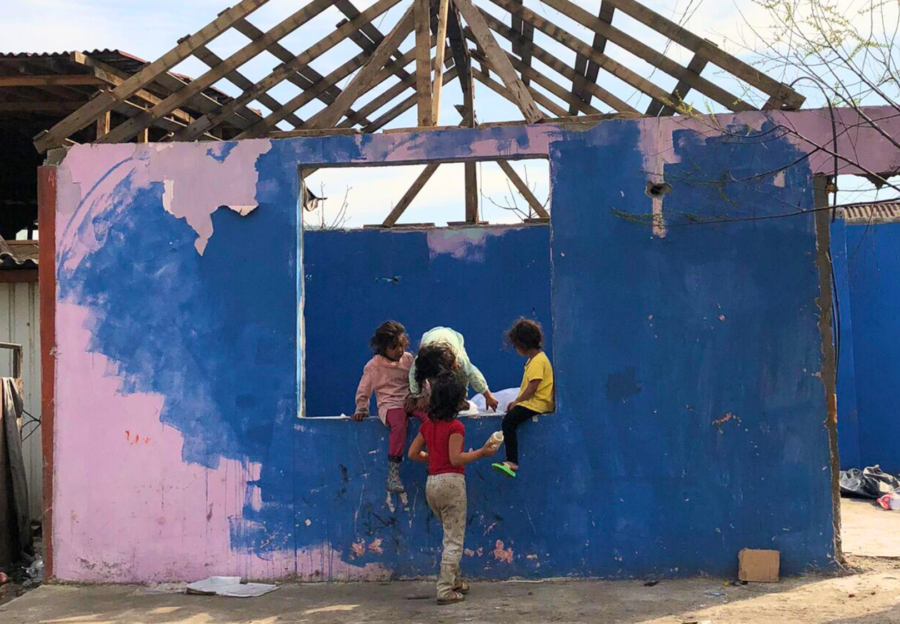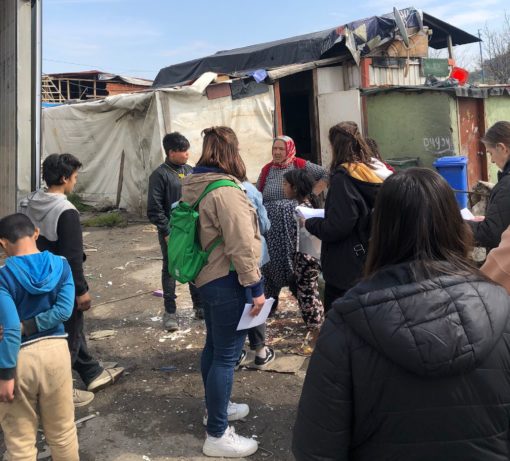
The Deep Poverty Network (Derin Yoksulluk Ağı – DYA) supported by our Digital Transformation Fund, tracks poverty among families and university students who arrived in Istanbul in the aftermath of the Kahramanmaraş earthquakes and raises awareness on this issue by generating valuable data.
Our Digital Transformation Fund, initiated in partnership with the Support Foundation for Civil Society (Sivil Toplum için Destek Vakfı) and the European Bank for Reconstruction and Development (EBRD), aims to support civil society organisations in their digital transformation journey. This year, the fund supports organisations responding to the aftermath of the Kahramanmaraş earthquakes, working to mitigate the impact and help survivors rebuild their lives.
Please read the following interview with the organisation for an insight into their work and the impact of their initiatives.
What is the Deep Poverty Network’s approach to fighting poverty?
The Deep Poverty Network views poverty as a multi-dimensional issue and approaches it from a human rights perspective. This means acknowledging that poverty is not just about a lack of income but also involves barriers to accessing social, cultural, and economic rights. We believe poverty includes a lack of access to education, healthcare, housing, and other fundamental life standards, considering these human rights violations.
DYA’s strategy involves fieldwork and community engagement to directly understand the needs and experiences of people living in poverty and to develop sustainable solutions based on this information. We focus on disadvantaged groups such as women and children, addressing issues like social exclusion and access to education and healthcare services.
Advocacy and lobbying are central to our efforts, aiming to raise awareness and influence policymakers. We emphasise intersectional and multifaceted solutions, considering factors like geographic region, ethnicity, and immigration status to develop specific policies that address the unique impacts of poverty on different groups.
With our grant support, you are implementing the “Documentation and Data Sharing on Disaster Poverty in Istanbul” project. Can you tell us about the activities of this project?
Our project, launched after the February 6 Kahramanmaraş earthquakes, aims to monitor and raise awareness about the poverty experienced by families evacuated to Istanbul and university students affected by the disaster. We collect data about these groups, analyse it, and integrate it into a comprehensive database. This analysis provides detailed insights into the geographical distribution of post-disaster poverty, the forms it takes, and the support needed.
We have developed questions to accurately define household and individual conditions, considering various aspects of poverty. We upload data from fieldwork, household visits, and individual interviews to our system. We also update and expand our previous database with new information. Our partner, the Needs Map (İhtiyaç Haritası), has been instrumental in this process.
We will share our findings with other civil society organisations (CSOs), local authorities, and relevant actors, hoping to improve coordination and develop more effective support models. AI tools will help visualise and analyse the data, making it more accessible and understandable for a wider audience.
The project includes an in-kind support program to strengthen the relationship between research and fieldwork, ensuring sustainable impact. By using digital platforms, we aim to manage data collection and sharing more effectively, enhancing communication and coordination with other actors in disaster poverty mitigation.
 How are you mapping disaster poverty in Istanbul? What information will this map include, and how will it be used?
How are you mapping disaster poverty in Istanbul? What information will this map include, and how will it be used?
Our methodology for mapping disaster poverty in Istanbul involves comprehensive data collection and analysis. We gather data on families evacuated to Istanbul and students at local universities, continually updating our database. The information collected includes household demographics, nutritional status, presence of disabilities, child age groups, support received, debt status, housing safety, psychological support needs, and direct disaster impacts.
For students, we inquire about household responsibilities, school attendance, meal frequency, reasons for absenteeism, material needs, recreational activities, and expenses. We use AI to report access to play areas, daycares, healthcare, green spaces, and public transportation based on address information.
Why do disasters disproportionately affect the poor, and how should they be supported post-disaster?
Having support mechanisms is crucial for recovery after a disaster. Families evacuated to Istanbul and other cities quickly left the region thanks to the support of relatives and friends. Establishing a new life and accessing jobs and educational opportunities require a strong social network, which not every household has. Ongoing crises exacerbate the difficulties these families face in accessing essential resources such as food, healthcare, housing and quality education.
How has the Digital Transformation Fund project influenced your future plans?
Our data visualisation project aligns with our goal of mapping needs and support systems. We aim to map discrimination and human rights violations faced by women and children, focusing on socio-economic factors like neighbourhood street lighting, public transport, proximity to green spaces, childcare, and employment opportunities. This helps us advocate for directing local and public services to these areas.
What message do you have for donors during this period of rebuilding donation culture?
We have obtained official permission to collect donations from the governor’s office this year. We have increased opportunities to engage with donors through individual campaigns, bazaars, and events like marathons. We launched campaigns on the Adım Adım platform, and our solidarity giving circles, created with volunteer support, are spreading the donation culture.
We celebrate Giving Day with the Third Sector Foundation of Turkey (Türkiye Üçüncü Sektör Vakfı – TÜSEV) and use social media to gain support from influencers for special days and advocacy efforts. As a member of the Açık Açık platform, we protect donor rights and prioritise accountability and transparency in all our work. Simultaneously, we receive mentorship from Kerem Çiftçioğlu with the Digital Transformation Fund’s support to handle donor relations, in-kind donations, and donation campaigns within an institutional framework.
About the Deep Poverty Network
The Deep Poverty Network, established by the Open Space Association in March 2020, works on the access of disadvantaged families to basic needs such as food, hygiene products and baby supplies by identifying these needs through field visits. The Open Space Association conducts activities for socio-cultural empowerment, field research to advocate for the eradication of poverty, and workshops and training programs with a rights-based perspective.



